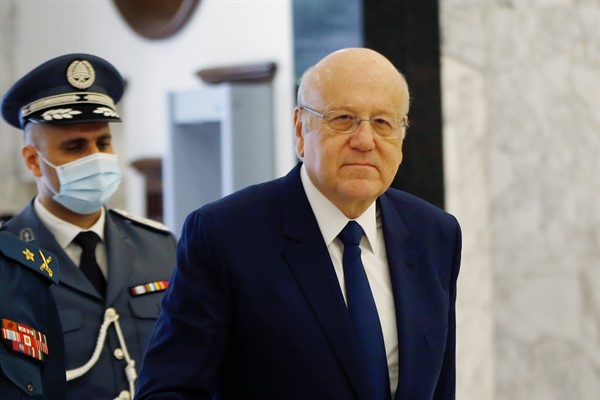Editor’s Note: This is the web version of our subscriber-only weekly newsletter, Middle East Memo, which includes a look at the week’s top stories from and about the Middle East. Subscribe to receive it by email every Monday. If you’re already a subscriber, adjust your newsletter settings to receive it directly to your email inbox.
The long-suffering people of Lebanon might finally have some good news on the horizon. A new government finally has been formed and, critically, the International Monetary Fund will replenish Lebanon’s nearly empty foreign reserves on Thursday, depositing $1.13 billion in IMF Special Drawing Rights, or SDRs, in Lebanon’s Central Bank. Unfortunately, chances are slim for a wholesale reform of the kleptocracy that has driven the country into economic collapse and political paralysis.
In addition to the cash infusion, the new government will be empowered to negotiate an IMF aid package. That represents the best near-term opportunity for a country whose population has experienced a cascade of avoidable misery over the past two years due to a fiscal crisis caused in large part by the narrow circle of political bosses who dominate the country’s politics. Medicine, fuel and many food staples are scarcely available in Lebanon, which has experienced one of the world’s largest economic contractions in modern history; the World Bank says Lebanon’s crash is among the three most severe documented in the world since the mid-1800s.*

